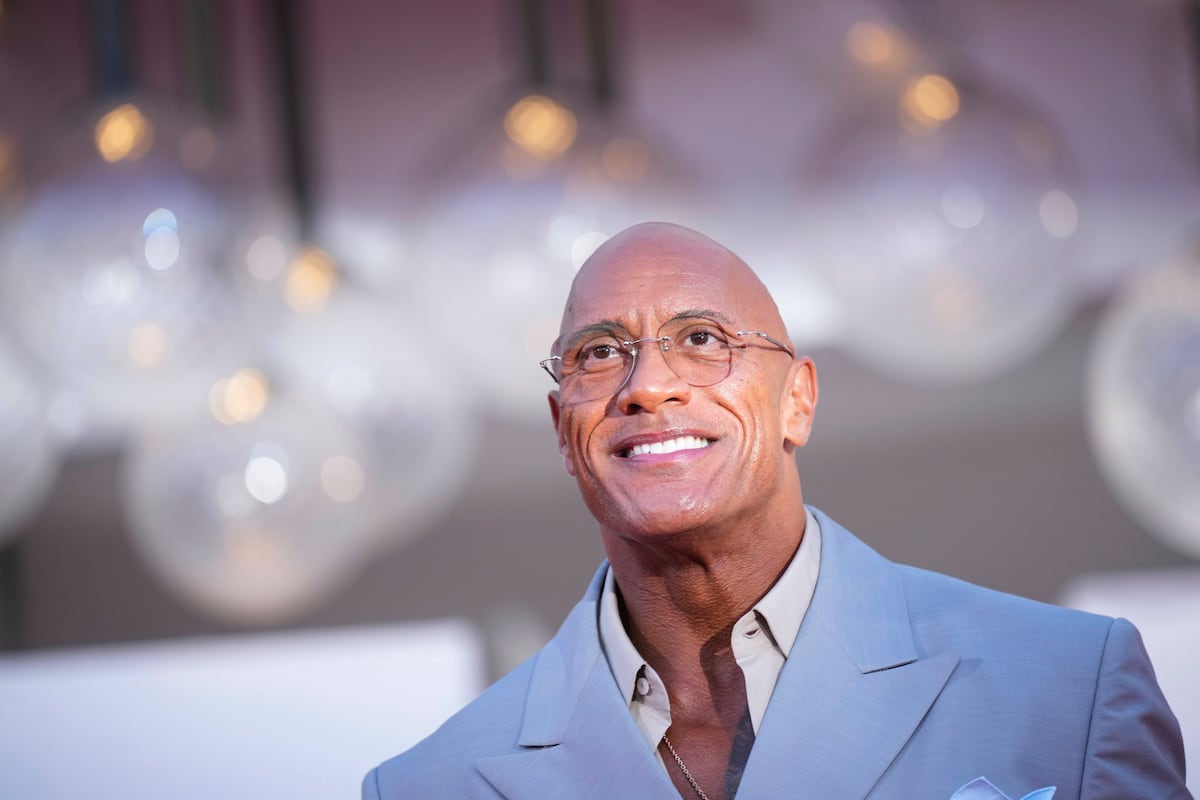
The Rock, Van Damme… extraordinary actors? When action heroes get revenge on critics | Culture
From a financial standpoint, the recently released The Smashing Machine isn’t going to be the biggest box office score of Dwayne Johnson’s career. In its first week, it barely grossed $6 million, a figure far removed from other The Rock movies such as the Fast & Furious saga (which he has been part of since 2011) or San Andreas (2015), and the actor himself has acknowledged this. “From deep in my grateful bones, thank you to everyone who has watched The Smashing Machine‚” he wrote on his social media. “In our storytelling world, you can’t control box office results — but what I realized you can control is your performance, and your commitment to completely disappear and go elsewhere. And I will always run to that opportunity.”
It hasn’t earned millions in revenue, but it has achieved something more significant: placing his name, for the first time, on the list of possible Oscar nominees for Best Actor. The project, directed by Benny Safdie and produced by the independent hitmaker A24, has long been cherished by the actor, who found in it similarities with his own career. Based on the life of mixed martial artist Mark Kerr and the documentary The Smashing Machine: The Life and Times of Extreme Fighter Mark Kerr (2002), it tells of his success and subsequent descent into hell, as well as his struggle with addiction and the toxic relationship he had with his wife, Dawn Staples. The film hasn’t convinced an audience hoping for a new action movie to add to Johnson’s filmography, nor has it enticed the “serious” cinema fans, who feared walking into another action film by The Rock. Instead it has remained in no man’s land, despite the critical acclaim it has received. “The actor delivers an intoxicating mix of blood, sweat, tears, protein and total helplessness,” wrote The Hollywood Reporter. Director Christopher Nolan went further: “I think it’s an incredible performance, and I don’t think we’ll see a better one this year or for a long time.”
This isn’t the first time an action hero has decided to take on a smaller project, and a pay cut, in an attempt to prove to the world they can also act. Below, we review other examples.
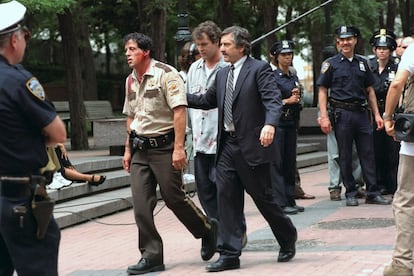
Sylvester Stallone: ‘Copland’
It’s hard to believe someone who began his career by being nominated for Best Actor and Best Original Screenplay in the same year had to wait three decades to have his talent vindicated, but the truth is that the credit that Rocky (1976) brought to Sylvester Stallone was buried by three Razzie nominations for Worst Actor and a career dedicated to escapist films like the Rambo sequels, Over the top (1987) or Cobra (1986), and several failed attempts to become a comedy actor, such as Oscar (1991) or Stop! Or My Mom Will Shoot (1992).
He was more successful in James Mangold’s Copland (1997), alongside Robert De Niro, Harvey Keitel and Ray Liotta, a role that arrived when the star of First Blood (1982) seemed to have left his best days behind. In this 1970s-style thriller, Stallone plays Sheriff Freddy Heflin, a half-deaf and overweight lawman, something unprecedented in Sly’s career and a complete surprise for fans and critics. Stallone’s performance — Mangold initially didn’t want him for the role because he feared his fame would overshadow the character — is subtle, nuanced, and similar to his work in Rocky. The box office was not as enthusiastic as the critics: it grossed just $63 million, a far cry from the $160 million that Daylight (1996) had just earned.
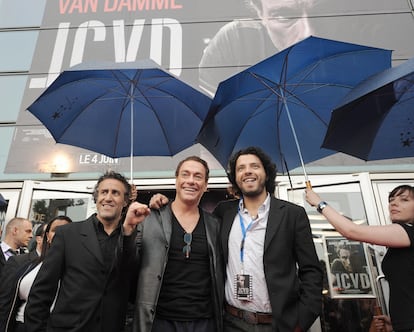
Jean-Claude Van Damme: ‘JCVD’
If, in The Smashing Machine, The Rock acknowledged elements of his own life, in the film that served to showcase Jean-Claude Van Damme’s dramatic potential, his own life was literally present. In JCVD (2008) by Franco-Belgian director Mabrouk El Mechri, the martial arts legend plays himself. He’s a former movie star who has to accept that his brilliance has worn off, that there are no roles to match his former successes (all of them go to his rival Steven Seagal, whom you won’t see on this list), and that he’s only appreciated in his native Belgium. In JCVD, Van Damme reflects — he even cries! — and breaks the fourth wall, one of the few things that hadn’t been broken in his previous films. But there are also plenty of slaps, flying kicks, and explosions. The film was inspired by a French television documentary in which he discussed his public image and professional mistakes. Watching it inspired El Mechri, a fan of the actor who managed to convince him to participate despite his initial reluctance.
A mere $2 million in box office receipts didn’t serve to shore up Van Damme’s coffers, something he was well aware of. “The fans who liked my earlier films, who watch films to escape and have some fun, this won’t be their cup of tea,” he acknowledged in an interview with The Guardian. “But I think I will gain a different kind of audience.” He did enjoy the enthusiasm of critics who had never seen one of his films. “You can safely forget everything you think you know about Van Damme,” opined The Guardian. “He can act,” stated The Washington Post. “Van Damme proves once and for all that he’s not just a pair of shiny pecs,” declared The Hollywood Reporter.
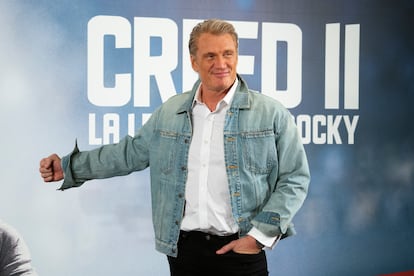
Dolph Lundgren: ‘Creed II’
No supporting actor in the Rocky universe is as fascinating as the Herculean Ivan Drago. Not only for his canonical representation of the enemy of the free world in the throes of the Cold War, and for being the man who killed the beloved Apollo Creed, but also for the news that emerged about the actor who played him. Viewers were delighted to discover that Dolph Lundgren was a brainiac, an engineer trained at the prestigious Massachusetts Institute of Technology (MIT), and also the partner of actress and singer Grace Jones, whom he met on the set of A View to a Kill (1985). Despite the success of Rocky IV (1985), his career never took off. The role that catapulted him to fame also kept him tied to the archetype he had played alongside Stallone: cold, implacable, methodical, and a lethal weapon. Recognition eventually came precisely in the twilight continuation of the saga that brought him his initial fame.
In Creed II, Drago returns to redeem himself for his devastating act, to the point that he is forgiven by the son of his dead rival, Adonis Creed. The fact that this character has a backstory, a depth that was absent in Rocky IV, is what led Lundgren to accept reprising the role that marked his life. “I thought they were just going to use me to promote the film, as a gimmick. That no one cared much about my performance or developing my character in the film. I thought I was going to be like a trophy and that it was much better to leave the character in the 1980s, with his crimson shorts. But then I read the script [written by Stallone himself], spoke with the director, and realized he was someone who wanted to create an interesting character. He wanted to say something about fatherhood, which is something very close to my heart, for personal reasons. So I decided to do it,” Lundgren reflected after the premiere.
In Creed II, Drago is old, tired, and familiar with rejection. Just like Lundgren, who went from multi-million-dollar box office hits and starring roles in big-budget films like Masters of the Universe (1987) to straight-to-video movies. His private life also suffered a decline until Stallone called him up for The Expendables (2010). Then came Creed II and Aquaman (2018).
“Lundgren gives a full, rich performance; easily one of the best of his career,” said Screen Crush. They weren’t the only ones who took note. “Lundgren gives the most nuanced performance of his career, coming to terms with the physical and emotional damage he’s dealt with for decades; he’s created an older, broken Drago, rejected by his people after his defeat at the hands of Rocky Balboa 33 years earlier,” stated The Hollywood Reporter.
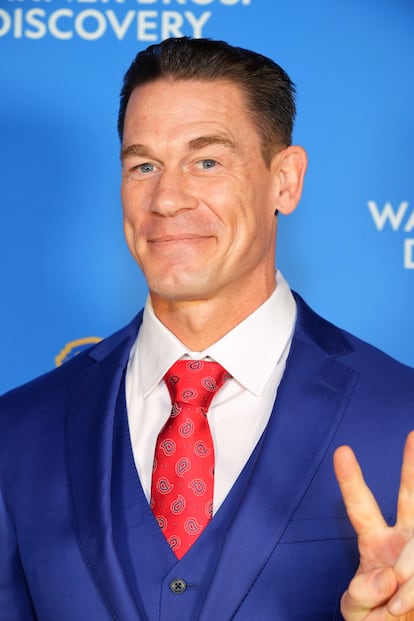
John Cena: ‘The Peacemaker’
The latest wrestler to hit the big screen has also provided one of the biggest surprises, and one of the most pleasant. John Cena’s Hollywood career has been as dizzying as his wrestling feats, where he became a major star in the WWE and won 17 world titles. This success didn’t go unnoticed in Hollywood. The obvious choice would have been to focus on action films, and that’s what Cena did initially with titles like The Marine (2006), but his comedic talent soon led him in other directions. The last king of comedy, Judd Apatow, incorporated him into Trainwreck (2015) and, after demonstrating his comedic abilities, he has appeared in countless series, also making a cameo in Barbie (2023), recovering the spirit of the Farrellys of the 1990s in Ricky Stanicky (2024), and supposedly appearing naked at the Oscars.
In each of his roles, he demonstrates not only an extraordinary sense of humor, but also an ability to laugh at himself as big as his biceps. But he also brings something more to the table, as has been demonstrated in the HBO series Peacemaker (2022), a spin-off of The Suicide Squad (2021), in which it became clear that both the character and Cena deserved their own series. The second season has not been as enthusiastically received as the first, but its protagonist is still getting good reviews. “John Cena is phenomenal in the series, bringing plenty of depth to this character, even when the script is lacking. Chris is a character who often runs the risk of coming across like a caricature, but Cena manages to balance the goofy humour with making the former Task Force X member someone we can root for and understand as he contemplates his place in the world,” said the specialized website Comic Book Movie. An opinion shared by critic Kaiya Shunyata in The Daily Beast. “In this starring TV role, Cena has proved himself not only as the best wrestler-turned-actor of our times, but one of the best actors to grace our TV screens.”
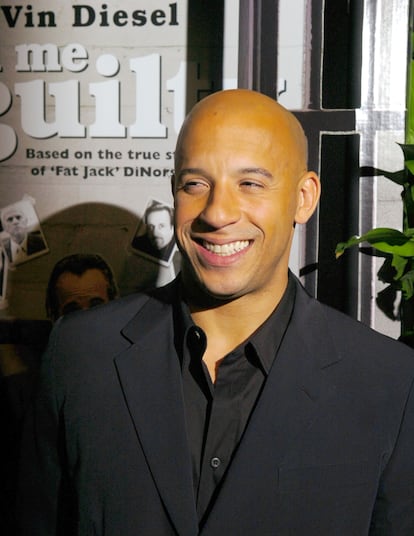
Vin Diesel: ‘Find Me Guilty’
Vin Diesel has always been associated with action films, a genre in which he has enjoyed hits such as Pitch Black (2000), xXx (2002), The Chronicles of Riddick (2004), and through his role as Dominic Toretto in the Fast & Furious saga, but from the outset he has tried to be much more than just a distributor of punches. That was clear from his debut, a very brief appearance in Awakenings (1990), the film based on the life of neurologist Oliver Sacks, starring Robin Williams and Robert de Niro. Then came Steven Spielberg’s Saving Private Ryan (1998) and the inevitable foray into the muscle-bound comedy genre with The Pacifier (2005). His career was lacking a role that would allow him to deliver a definitive performance not largely based on his physique, and it came from the hand of one of the great masters of the thriller, Sidney Lumet, responsible for Dog Day Afternoon (1975) and Network (1976).
In the 2006 courtroom drama Find Me Guilty, based on real events, Diesel plays Jackie DiNorscio, a mobster who, ignoring everyone’s advice, fires his lawyer and defends himself in a trial that could land him a 30-year prison sentence. Overweight, wearing a toupee, and lacking in physical heroism, he was radically different from any character he’d played previously. The film isn’t among Lumet’s career highlights, but Diesel’s role was widely acknowledged.
“A sensational performance,” The New York Times said, while critic Roger Ebert called it “a remarkable interpretation.” Though, as is often the case with radical career shifts, the box office turned its back on the movie. But as Brogan Morris wrote, for Diesel, Find Me Guilty is “proof that there’s a hidden depth beneath the muscles and swagger, made all the more special by its uniqueness, in the repertoire of an action hero who secretly always had more to give.”
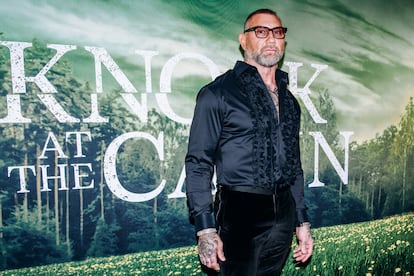
Dave Bautista: ‘Knock at the Cabin’
Bautista, the four-time World Heavyweight Champion, has a story loaded with clichés. He grew up surrounded by crime in a slum. In his autobiography, Batista Unleashed, he recounts that by the age of nine he had already witnessed three homicides, that he had no interest in school, and that he got into fighting because he needed to eat. His career was meteoric. He quickly found success, but he felt he wanted something more, an acting career like Cena’s, the other big star in the WWE at the time. The important roles took a while to come, but when they did, they came in a big way. The imposing, tender and goofy Drax from Guardians of the Galaxy (2014-23) alone would serve to highlight what a good actor there is under his imposing muscles, but Bautista added another relevant character to his filmography, the terrifying Rabban Harkonnen from Denis Villeneuve’s Dune (2021-24), which allowed him to show off his dramatic ability.
However, it was his role in the apocalyptic Knock at the Cabin (2023), by M. Night Shyamalan, who had been impressed after seeing him in Blade Runner 2049 (2017), that consolidated him as a serious actor. The story of a girl and her parents — who are taken hostage by unknown armed men who demand the family make a sacrifice to prevent the end of the world — allowed him to show off his acting chops, with a range much broader than one might expect. The Hollywood Reporter, which describes him as an excellent and versatile actor, placed him at number one in its ranking of wrestlers who made the switch to the big screen, above The Rock and Cena.
Sign up for our weekly newsletter to get more English-language news coverage from EL PAÍS USA Edition



